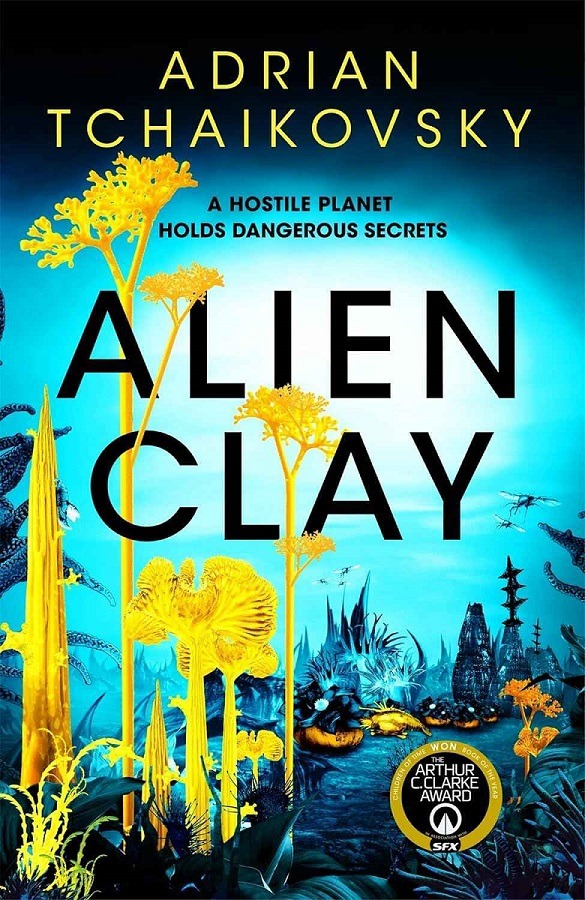
An exoplanet with imaginative biology, a fascist prison cap, and bitter academic prisoner. What’s not to like? Well…
The life of ecologist Arton Daghdev is ripped apart when he’s convicted of dissident science and transported to a labor colony on the distant planet, Kiln. But the wildlife on Kiln is fascinating, and luckily, he’s assigned to the scientific team’s support staff.
Still, the menial role rankles the arrogant professor. How can he study ecology shackled by authoritarian doctrine and confined to a lab? Then a prison revolt changes everything, the professor encounters Kiln’s native life, up close and personal.
I was immediately sucked into the imaginative biology and archeology of planet Kiln, and theoretically, I should’ve loved this book as much as I’ve loved many other Adrian Tchaikovsky novels, including Cage of Souls, which is based on a very similar premise. But the main character is bombastic and hard to like. And while both of Tchaikovsky’s prison novels are written in first person past tense, the choice deflates the drama of Alien Clay much more noticeably than in Cage of Souls.
(Although, I have to say, first person past – the character telling the story from the future – is a weird choice for any prison drama, as it kills suspense by revealing that the character survives the action. Unless the character is narrating posthumously, as in the famous old-Hollywood movie, Sunset Boulevard, in which the narrator is floating face down in a swimming pool.)
Alien Clay is also marred by excessive repetition, mostly Arton’s pretentious internal dialogue: his past, his take on science, his take on “the man”, his take on humanity, etc. His ruminations can be insightful, but are sometimes repeated in triplicate, each iteration slightly reworded, one after the other, making for a peanut butter thick paragraph, and significantly slowing the story. A solid edit might’ve reduced the text to a taught and much more interesting novella.
The text is also riddled with sentences that end in prepositions. As we have all known since junior high, a preposition is the wrong word to end a sentence with. And a sprinkle of words and punctuation are missing from the text, leaving the reader to puzzle out the author’s intended meaning.
Now, I’ll happily overlook a smattering of text errors in a three dollar indie novel; however, this novel was traditionally published and cost me about thirteen dollars. For that price, I expect more than a book that reads as if the author sent in a second draft and no human professional editor or proofreader touched the text prior to publication, the publisher probably figuring a shoddy job would suffice given the author’s reputation.
Next time, try harder.
